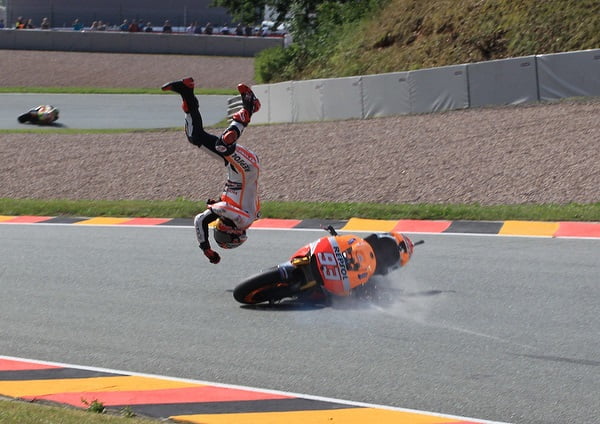Safety equipment is making enormous progress, some visible like airbags, others much more discreet but nonetheless just as effective. The International Federation has just improved the helmet testing procedure to approve them for competition.
The FIM Technical Commission and the Circuit Racing Commission have just announced the launch of the new FIM Homologation Program for racing helmets (PHCC or FRHP in English).
Until now, the FIM has only stuck to the international standards in force for the approval of helmets used in its competitions. The PHCC now implements the latest cutting-edge methods and defines more innovative and demanding criteria, in addition to compliance with international standards. This approval will be a mandatory prerequisite for access to FIM competitions from 2019, initially for circuit races.
The reaction of helmets to oblique impacts of medium intensity, among others, will be evaluated in laboratories approved by the FIM, such as the mechanics laboratory of the University of Zaragoza. The oblique test constitutes the most innovative and modern aspect of the test method and simulates a very common scenario in observed accidents. However, it had never been taken into account in international standards until now.
To Vito Ippolito, President of the FIM: “This approval will allow the FIM to ensure more complete and high-end protection for its drivers and in particular to better monitor and control the helmets used in FIM competitions, in order to preserve the interests of manufacturers of “approved” helmets. The FIM also hopes that the new test protocol can continue to evolve, while becoming a source of inspiration for disciplines other than circuit racing and that it will “ultimately” become part of international standards for use. on the road.
According to Christian Silei, CEO of the Dainese Group: “At the Dainese Group, we are constantly striving to advance the safety of our AGV helmets. The FIM’s consideration of oblique impacts represents a giant step in this direction.”
According to Xavier Cadens, MatGroup RDI manager: “ This is a step forward in helmet safety globally.”
To Robert Reisinger, director of engineering at 6D: “ 6D Helmets is excited to see the progress made by the standard that the FIM is preparing which incorporates testing of rotational measurements and energy attenuation. We look forward to future advances in defining testing for helmets and the positive results they will bring to consumers and racing drivers.”

Photos © motogp.com and FIM



